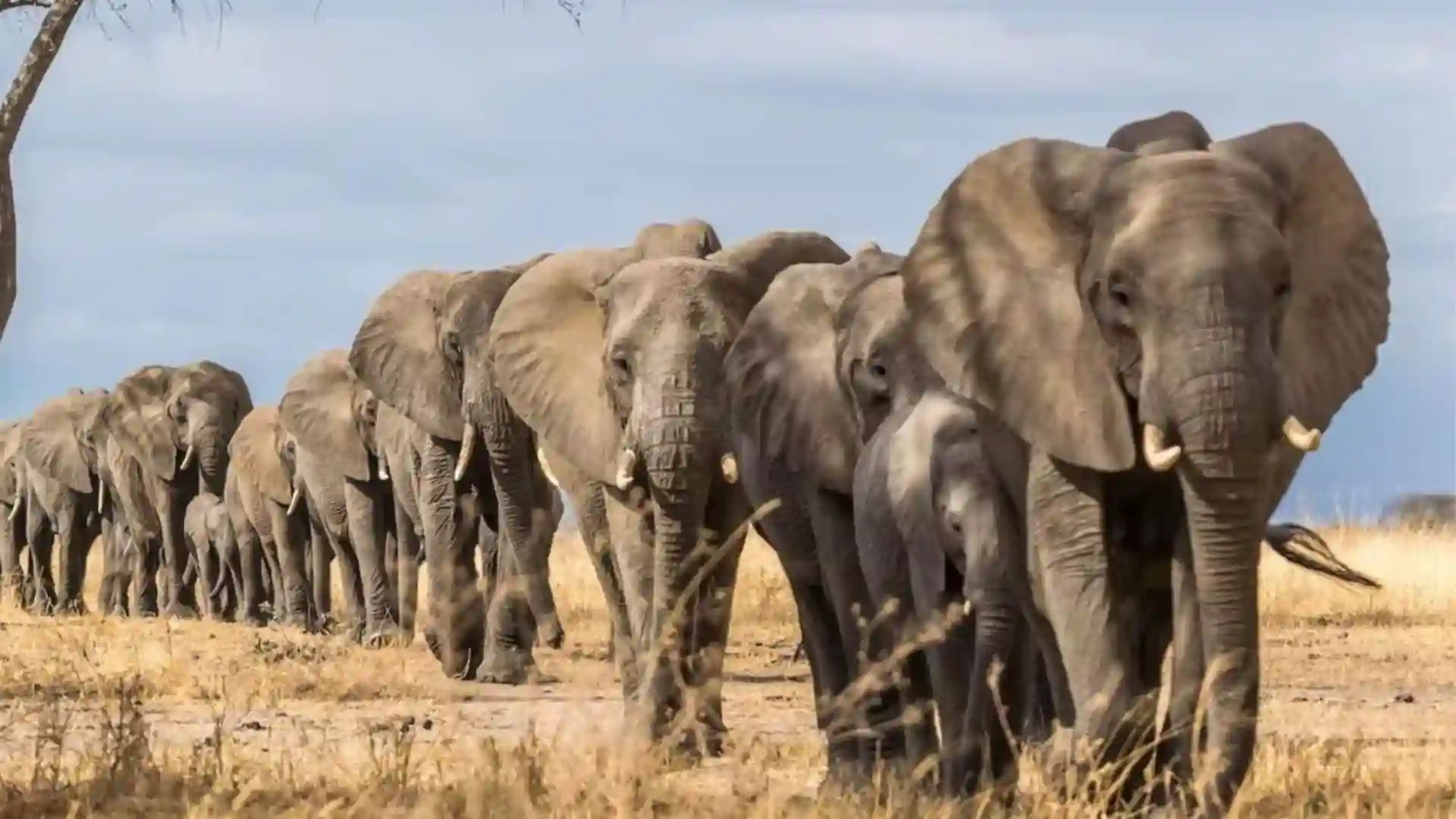The Zimbabwe Parks and Wildlife Management Authority (ZIMPARKS) has said a significant number of elephants from Hwange National Park, the largest national park in Zimbabwe, are migrating to Botswana in search of water.
The park, spanning over 14,600 square kilometres, is a habitat for approximately 50,000 elephants. This movement of animals from Hwange National Park to Botswana began in August. ZIMPARKS spokesperson, Tinashe Farawo, told AFP:
Many animals have and are moving from Hwange National Park into Botswana.
Water bodies have dried up and the animals are in search for water and food.
He added that buffaloes and “all types of animals present in the park” were also migrating in scores. Farawo said:
I can’t quantify how many elephants have moved whether its hundreds or thousands but it has been a lot.
The amount of animals migrating has definitely increased over the years due to the increase in water shortages.
Climate change has caused an early migration of wildlife from Zimbabwe’s Hwange National Park to Botswana, according to the Zimbabwe Parks and Wildlife Management Authority. This movement, which could result in heightened conflicts between humans and animals, poses challenges as animals encroach upon populated areas in search of water.
Tinashe Farawo expressed concerns about increased competition for water resources. Human-wildlife conflicts are already prevalent in remote parts of Zimbabwe, with elephants alone causing the deaths of at least 60 people last year. Zimbabwe has an elephant population of around 100,000, while Botswana boasts the world’s largest elephant population, estimated at 130,000.

